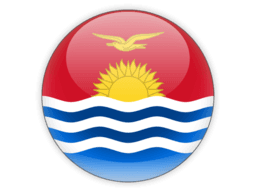
Regions of Kiribati
Explore 3 regions
Cities of Kiribati
Discover 3 cities across 1 regions
Gilbert Islands(3)
Kiribati is a small island nation located in the central Pacific Ocean. It consists of 33 coral atolls and islands, with a total land area of just 811 square kilometers (313 square miles). The country is divided into three island groups: the Gilbert Islands, the Phoenix Islands, and the Line Islands. The capital city of Kiribati is Tarawa.
The population of Kiribati is around 120,000 people, the majority of whom are of Gilbertese ethnicity. Kiribati is a former British colony and gained independence in 1979. The country is a member of the Commonwealth of Nations and the United Nations.
The economy of Kiribati is largely based on fishing and subsistence agriculture, with the majority of the population living on small, remote islands. Copra and fish are the main exports of Kiribati. The country is also highly vulnerable to the effects of climate change, with rising sea levels threatening the country's low-lying islands.
Tourism is a small but growing industry in Kiribati, with visitors attracted by the country's pristine beaches, clear waters, and unique cultural traditions. Some popular activities for tourists include swimming, snorkeling, scuba diving, and visiting traditional villages and cultural sites. The Phoenix Islands Protected Area, a UNESCO World Heritage Site, is a popular destination for eco-tourists and nature lovers.
Visitors to Kiribati must obtain a visa in advance, and travel to some of the more remote islands may require additional permits. The main language spoken in Kiribati is Gilbertese, although English is also widely spoken. The local currency is the Kiribati dollar, although the Australian dollar is also accepted.
Telephone Code
686
Local Emergency Phone
994
Vaccinations
An International Certificate of Vaccination for yellow fever is required for travelers arriving from countries with a risk of yellow fever transmission and for travelers having transited through the airport of a country with risk of yellow fever transmission. See WHO recommendations.
Climate
Tropical; marine, hot and humid, moderated by trade winds
Currency (Code)
Australian dollars (AUD)
Electricity/Voltage/Plug Type(s)
240 V / 50 Hz / plug types(s): I
Major Languages
I-Kiribati, English
Major Religions
Roman Catholic 57.3%, Kiribati Uniting Church 31.3%, Mormon 5.3%, Baha'i 2.1%, Seventh Day Adventist 1.9%
Potable Water
Opt for bottled water
International Driving Permit
Suggested; if a longer stay is in your plans, you will need to get a Kiribati driving license.
Road Driving Side
Left
Tourist Destinations
Christmas Island (Kiritimati); Tarawa Atoll (includes Betio Island)
Major Sports
Soccer
Cultural Practices
Your feet should never be close to someone's head. If you pass someone lying down, be sure to walk carefully around them, otherwise your action will be considered rude.
Tipping Guidelines
Tipping is not customary, but a visitor's generosity will be much appreciated. A 10% service tax is added to all hotel bills.
Souvenirs
Hand-smocked tops; beaded, sea shell, or wood jewelry; Pandanus leaf, coconut, or sea shell items; Gilbertese canoe and house models, shark-tooth items
Traditional Cuisine
Palusami - wrapped bundles of taro leaves with a coconut-and-onion filling; sometimes also made with chicken or fish
Geography
Area
total: 811 sq km
land: 811 sq km
water: 0 sq km
Climate
tropical; marine, hot and humid, moderated by trade winds
Natural resources
phosphate (production discontinued in 1979), coconuts (copra), fish
People and Society
Population
115,372 (2023 est.)
Ethnic groups
I-Kiribati 95.78%, I-Kiribati/mixed 3.8%, Tuvaluan 0.2%, other 1.7% (2020 est.)
Languages
Gilbertese, English (official)
Religions
Roman Catholic 58.9%, Kiribati Uniting Church 21.2%, Kiribati Protestant Church 8.4%, Church of Jesus Christ 5.6%, Seventh Day Adventist 2.1%, Baha'i 2.1%, other 1.7% (2020 est.)
Population growth rate
1.02% (2023 est.)
Government
Government type
presidential republic
Capital
name: Tarawa
Economy
Economic overview
small, growing, environmentally fragile, Pacific island economy; major financial support from remittances, aid, and phosphate mining fund; tourism and fishing industries; poor business climate; inadequate anticorruption efforts; poor fiscal management
Real GDP (purchasing power parity)
$249.64 million (2021 est.)
Real GDP per capita
$1,900 (2021 est.)
Agricultural products
coconuts, roots/tubers nes, bananas, vegetables, taro, tropical fruit, poultry, pork, nuts, eggs
Industries
fishing, handicrafts
Exports
$10.754 million (2021 est.)
Exports - partners
Thailand 53%, Philippines 17%, South Korea 10%, Japan 9% (2019)
Exports - commodities
fish and fish produces, ships, coconut oil, copra (2019)
Imports
$201.984 million (2021 est.)
Imports - partners
China 20%, Fiji 19%, Australia 12%, Taiwan 11%, South Korea 11%, New Zealand 7%, Japan 5% (2019)
Imports - commodities
refined petroleum, netting, raw sugar, rice, poultry meats (2019)
International Airports in Kiribati
Discover 2 major airports serving Kiribati
Mark Kiribati as Visited
Add Kiribati to your personal travel map and track your journey around the world. Share your adventures and see your progress grow!